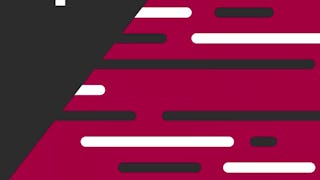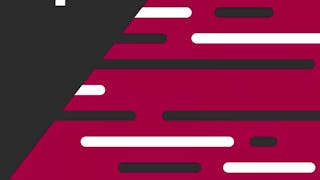Updated in May 2025.
This course now features Coursera Coach! A smarter way to learn with interactive, real-time conversations that help you test your knowledge, challenge assumptions, and deepen your understanding as you progress through the course. This course is designed to help you master Kubernetes from the ground up. By the end, you'll understand how Kubernetes simplifies container orchestration and efficiently manages containerized applications. Through hands-on demos and practical labs, you will gain valuable experience in deploying and managing applications on Kubernetes, making you confident in your skills. The course starts with an introduction to containers and their importance in modern application development. You'll explore the key concepts behind container orchestration, and learn how Kubernetes is a game-changer for managing these containers at scale. As you move forward, you'll dive deeper into the Kubernetes architecture and how its components work together. In the second phase of the course, you'll explore essential Kubernetes concepts like Pods, ReplicaSets, and Deployments. You'll be guided through hands-on demos of how to deploy and manage Pods, followed by a comprehensive exploration of ReplicaSets and how they ensure scalability in your Kubernetes clusters. You'll also gain practical experience deploying applications and managing updates with Kubernetes Deployments. The course wraps up by introducing cloud-based Kubernetes deployment using platforms such as Google Cloud (GKE), AWS (EKS), and Azure (AKS). It’s ideal for anyone interested in Kubernetes, including developers, system administrators, and DevOps professionals. No prior Kubernetes knowledge is required, though a basic understanding of containers would be helpful. ------- Please note that this course is closing to new enrolments on Nov 30th 2025, after which point all currently enrolled learners will have until Oct 31st 2026 to complete the course.
















